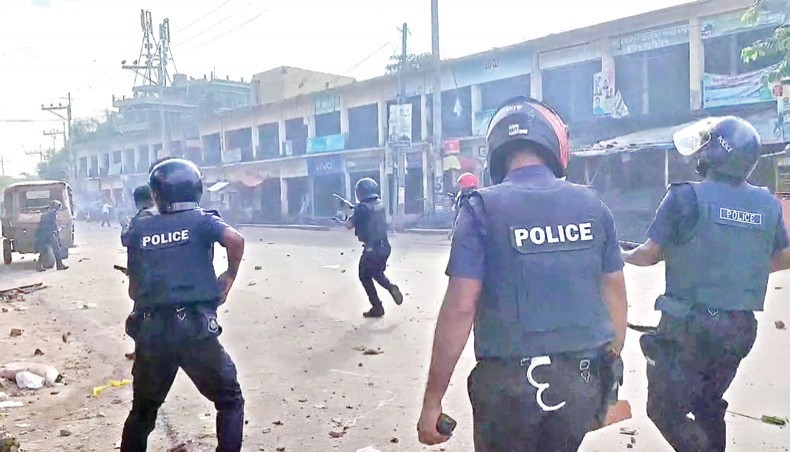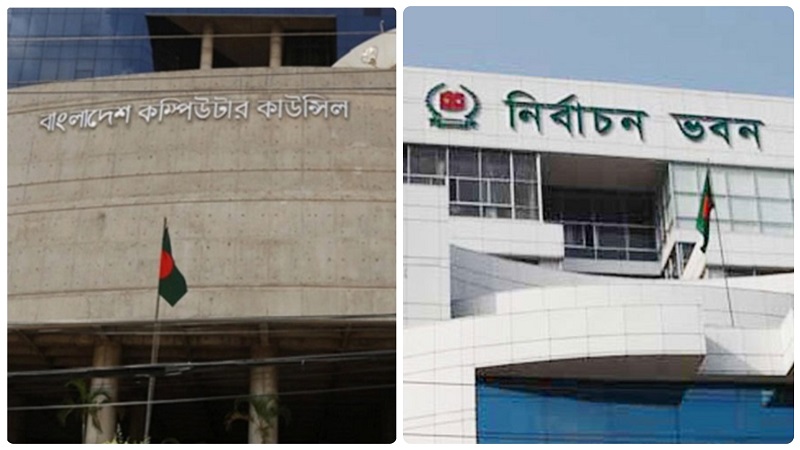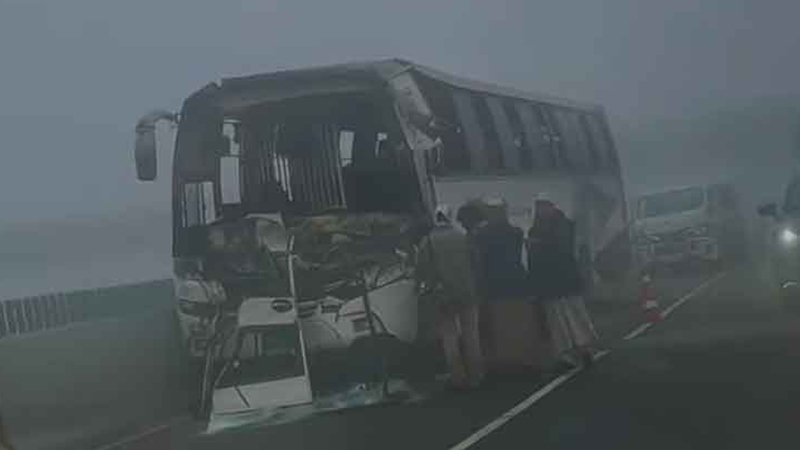With the country preparing for the general elections, sometime between December 2023 and January 2024, amid a rising number of political rallies and protests, Bangladesh Police have begun the process of procuring massive anti-riot equipment.
The police headquarters have recently started the process of procuring massive anti-riot equipment, including 15 lakh shotgun cartridges, six lakh blank cartridges, two lakh tear gas shells, 39,000 sound grenades, protection gear, surveillance equipment, and spy cameras.
The police headquarters floated separate tenders for the procurement of tear shells, sound grenades, and shotgun cartridges on October 11, days after the new inspector general of police, Chowdhury Abdullah Al Mamun, took charge on September 30.
On October 18, the police also started procuring 8,000 wooden butts for 7.62mm semiautomatic rifles.
Asked about the massive procurement, Md Manzur Rahman, the assistant inspector general (media and public relations) at the police headquarters, told New Age on Wednesday that those were their ‘regular procurements’.
On October 11, the arms and ammunition wing of the police headquarters floated a tender for the procurement of 15,00,000 pieces of the 12-bore shotgun cartridge (lead ball) and 6, rounds of 9x19 mm blank cartridge.
According to the tender notice, the last selling date of the tender is November 21, and the tender opening date is the following day. The police headquarters stated that completion of the procurement would be done within 120 days from the opening date of the letter of credit.
The police headquarters would also procure 1,10,000 pieces of 38 mm tear gas shells with long-range capability and 86,000 pieces of 38 mm tear gas shells with ‘3 munitions’ during the same period.
In another tender floated on October 11, the police headquarters announced plans to procure 24,000 pieces of sound grenades and 15,000 pieces of multi-impact tear gas grenades.
Shushashoner Jonno Nagorik’s secretary, Badiul Alam Majumdar, said that when the country was facing a financial crisis, such procurement looked ‘unnecessary’.
This procurement indicated that the government would use its strongest force for its survival even after questionable elections, he said.
‘This is an indication that a hard time is coming, and the police are preparing for repressive and coercive measures before, during, and post polls-time.’ Badiul, a local government and election expert, told New Age,
Apart from these ammunitions, the police headquarters were also in the process of procuring more body-worn cameras, wearable camcorders, digital security devices for police checkpoints, portable surveillance devices, multipurpose communication devices, portable video recorders, multipurpose pocket transmitters, and digital security devices for traffic police, modular cameras, spy cams, application software for surveillance devices, and application software for body-worn cameras.
On September 5, during the tenure of the immediate past IGP Benazir Ahmed, the police also started the process of procuring 9,000 pairs of leg shin guards for males and 1,000 others for females, as well as 10,000 pieces of the tactical belt.
On the same day, the police headquarters, in another tender, started the process of procuring 2,500 pieces of bulletproof body armour vests with ‘Level-3A’and 5,000 pieces of anti-riot helmets.
On August 17, it also started the process of procuring night vision goggles and handcuffs.
In January, the police headquarters launched the procurement of 8,000 pieces of 9mm pistols along with 8,300 pieces of stun grenades and 20,000 sound grenades.
The immediate past United Nations High Commissioner for Human Rights, Michelle Bachelet, on August 17, at the end of her visit to Bangladesh, urged the police to avoid excessive use of force while managing protests.
‘It is also important to ensure that law enforcement forces have the necessary training to manage protests without resorting to the excessive use of force,’ she said.
In their nine-month report published in October, rights group Ain O Salish Kendra said that 58 people were killed and 5,400 others injured in 387 instances of political and election-related violence and clashes in the country.
The highest number of clashes took place in Cumilla, where two people were killed and 256 others were injured, while clashes in Chattogram left six people killed and 302 injured, according to the report, which prepared the data based on the monitoring of national dailies and other media.
The main opposition Bangladesh Nationalist Party is holding regular rallies, demanding the resignation of the government, reinstatement of the provision of a caretaker government in the constitution, and protesting against the abnormal increase in the price of fuel oil and daily commodities.
At least five leaders and activists of the party have been killed during their demonstrations since August 22.
With the massive procurement, ASK’s executive director, Mohammad Nur Khan, said the government wants to send a chilling message to the citizens ahead of the next elections.
In December 2021, the police headquarters started procurement of 10, 00,000 pieces of 12 bore shotgun cartridge (lead ball), 15, 00,000 rounds of 9x19mm cartridge, and 6,00,000 rounds of 9 x 19mm blank cartridge.
Similarly, procurement of 10, 00,000 pieces 12 bore shotgun cartridge (rubber ball) and 5, 00,000 pieces of 12bore shotgun cartridge (lead ball) took place in December 2020.













